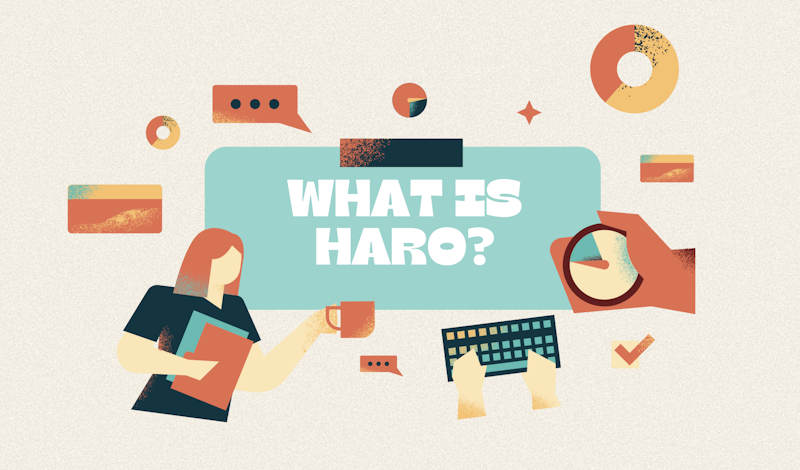In today’s digital world, getting your business featured on top news websites and blogs can boost your visibility and credibility. One of the best ways to achieve this is by using HARO, a platform trusted by journalists and marketers alike. But what exactly is HARO, and how does it work? Let’s break it down in simple terms.
What Does HARO Stand For?
HARO stands for Help A Reporter Out. It’s an online platform that connects journalists looking for expert sources with professionals, businesses, and content creators who can provide valuable insights.
In short, journalists post queries for upcoming stories, and sources (like you) can respond with relevant answers or quotes. If the journalist likes your response, they might feature you in their article — often on big websites like Forbes, Business Insider, or The New York Times.
How Does HARO Work?
HARO works through a simple yet powerful process. Here’s how it typically goes:
- Sign Up for Free – Anyone can register as a source on HARO.
- Receive Daily Emails – You’ll get three emails per day with journalist requests across various topics (business, tech, lifestyle, health, etc.).
- Find Relevant Queries – Scan the list and choose topics that match your expertise.
- Send a Response – Write a short, professional, and helpful reply to the journalist’s query.
- Get Featured – If your input is selected, you’ll get featured in their article — often with a backlink to your website.
Why Do People Use HARO?
HARO is widely used by marketers, entrepreneurs, and PR professionals because it helps them:
- Build high-quality backlinks from authority websites.
- Increase brand awareness through media mentions.
- Position themselves as industry experts.
- Boost SEO rankings with organic mentions.
- Gain trust from potential customers and readers.
Benefits of Using HARO for SEO
Getting backlinks from credible media sources can skyrocket your SEO performance. Here’s how HARO helps:
1. Earn Authority Backlinks
Journalists from trusted publications often include backlinks to your website when quoting you. These links come from high Domain Authority (DA) sites, which Google loves.
2. Improve Website Ranking
When Google sees backlinks from reputable websites, it considers your website more trustworthy — helping your pages rank higher in search results.
3. Drive Referral Traffic
Readers who see your quote or mention may visit your site, giving you a steady flow of quality traffic.
4. Build Long-Term Credibility
Being featured in media outlets gives your brand long-lasting credibility and increases your chances of future press coverage.
How to Write a Winning HARO Pitch
Responding to HARO queries effectively is the key to success. Here are a few tips to write a pitch that stands out:
- Be Quick: Journalists often work on tight deadlines. Respond as soon as possible.
- Be Relevant: Only reply to topics you genuinely know about.
- Be Concise: Keep your response short, clear, and value-driven.
- Include Credentials: Add your name, job title, and company name for credibility.
- Avoid Spam: Don’t over-promote your product — offer helpful information instead.
Common Mistakes to Avoid on HARO
Even though HARO is easy to use, many people make mistakes that reduce their chances of getting featured. Avoid these:
- Sending generic copy-paste responses.
- Ignoring the journalist’s specific question.
- Submitting pitches without contact details.
- Missing deadlines due to slow responses.
A little effort and attention to detail can make a huge difference in your success rate.
Who Can Use HARO?
HARO isn’t just for big brands or PR agencies. It’s open to anyone who wants to share expertise, such as:
- Small business owners
- Bloggers and content creators
- Freelancers and consultants
- Marketing professionals
- Industry experts
Basically, if you have valuable knowledge to share, HARO can help you gain exposure.
Is HARO Free to Use?
Yes! HARO offers a free version that works perfectly fine for most users. However, it also has paid plans that include:
- Early access to journalist requests
- Keyword alerts
- Profile customization
These premium features are great if you want to take your outreach to the next level.
Alternatives to HARO
While HARO is one of the most popular platforms, there are several alternatives worth exploring:
- Qwoted – A platform similar to HARO that connects experts and journalists.
- Terkel – Great for smaller brands and marketers.
- SourceBottle – Used widely in the US and Australia.
- Help a B2B Writer – Focused specifically on business-to-business stories.
Using a mix of these tools can expand your media exposure.
Final Thoughts
HARO is one of the most effective and affordable ways to build backlinks, gain press coverage, and strengthen your online reputation. Whether you’re a startup founder, marketer, or industry expert, this platform can help your voice reach top-tier publications.
If you consistently deliver helpful, insightful responses, HARO can become your secret weapon for organic growth and long-term brand visibility.

